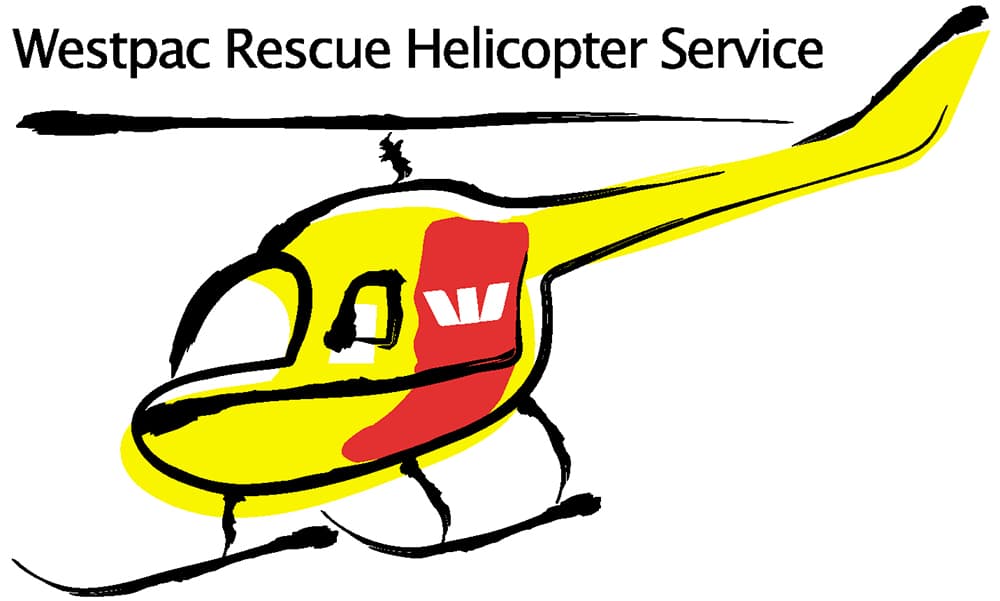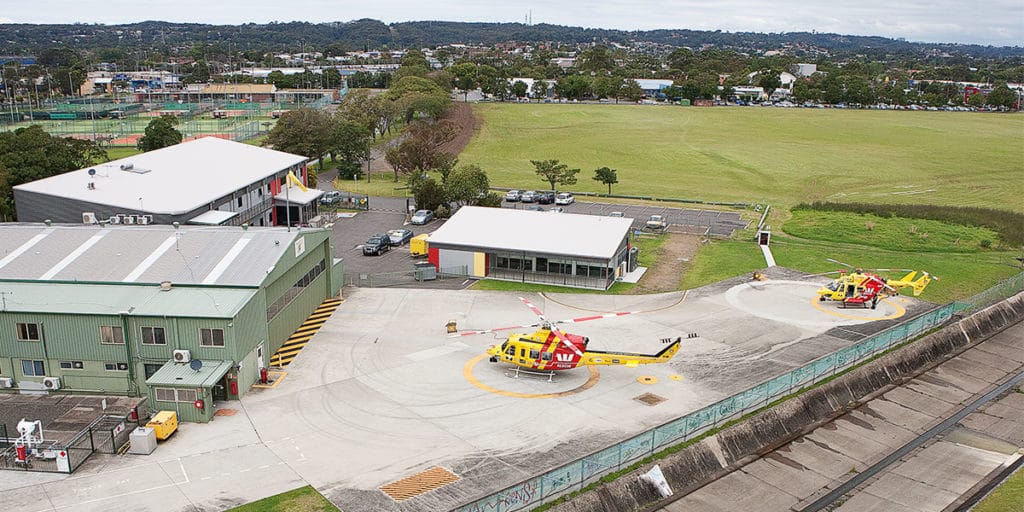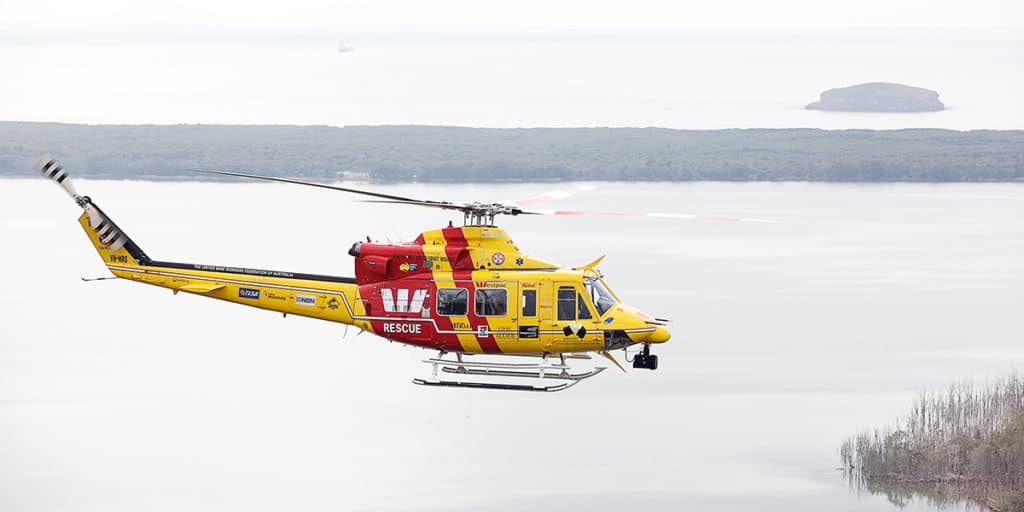Hunter Region SLSA (Surf Life Saving Assoc) Helicopter Rescue Service Ltd
 About the rescue service
About the rescue service
The Westpac Rescue Helicopter Service runs more than 1,400 missions each year. Highly skilled aircraft engineers maintain the service’s 4 twin-engine, single-pilot, all-weather machines.
No passenger has ever paid to be airlifted from an emergency. The rescue service is part of the Surf Life Saving Association (SLSA), and a continued community support.
Region serviced

Westpac Rescue Helicopter Service covers the Hunter, New England North West, Central Coast and Mid North Coast regions. This is an area of about 132,000 square kilometers and 1.2 million people.
Base operations in NSW
The service has 2 dedicated base operations at Tamworth and Broadmeadow, Newcastle. Each base has hangar and engineering facilities, refueling and maintenance facilities, crew accommodation, and office space for administration.
Needs and challenges of the helicopter service

- Meeting client expectations (NSW Health and Ambulance Service)
- Finding cost efficiencies
- Being an environmentally responsible member of the community
Client expectations – winning tenders: NSW Health and Ambulance Service is an important client for the Westpac Rescue Helicopters. To win health service contracts, the service needed to demonstrate a credible sustainability plan. Being competitive required energy smart, efficient, and environmentally responsible actions.
Cost efficiencies: The management team wanted to find cost savings through energy efficiencies. As well as improving the bottom line, the service needed to meet funding expectations of their client, the NSW Health and Ambulance Service.
Community: The helicopter service wanted to ‘walk the walk.’ They wanted to reduce the organisation’s impact on the environment as accountable, responsible members of the community.
Compliance undertaken and in progress
- Achieved AS/NZS ISO 14001 Environmental Management Systems (EMS) certification (December 2011)
- Carbon footprint to ISO 14064-1 (annually since 2008)
- Energy audits to AS / NZ 3598:2000 (2008, 2012)
Sustainability solutions for a greener service
Pangolin Associates helps the Westpac Rescue Helicopter Service with a range of sustainability actions. This includes measuring and offsetting emissions, and efficiencies across the organisation.
Measuring emissions: The first step was to measure the service’s environmental impact from ground operations. Pangolin Associates’ team calculates the service’s greenhouse gas (GHG) emissions annually.
Offsetting with carbon credits: As well as putting efficiency measures in place, the helicopter service offsets ground operation emissions with certified carbon credits. Carbon credits support global renewable energy projects, such as wind and solar.
Pangolin Associates purchased the credits in behalf of the rescue service. This is fully transparent and visible on the Markit Registry. With every credit purchased, the rescue service has effectively removed one tonne of carbon, or equivalent greenhouse gas, from the atmosphere.
Waste and water efficiencies:
- Segregating waste & recycling
- Collecting rainwater for cleaning aircraft and vehicles
- Using grey water for toilets, washing machines etc.
Energy efficiencies:
- Removing excess fluorescent lights and down lights across the site
- Installing ceiling fans to reduce the need for air conditioning
- Installing push button off switches on high bay lights in the Operations Hangar, to encourage turning off
- Introducing energy efficient diesel and LPG vehicles to the fleet, and reducing 6 cylinder vehicles
- Replacing old inefficient appliances with new energy smart appliances
In July 2012 Pangolin completed an energy audit identifying further energy reductions on top of those already undertaken. This will lead to lower costs and carbon emissions.
Renewable energy: In January 2012 the Westpac Rescue Helicopter Service installed 24 kW of solar panels. Following Pangolin’s recommendation, the service is examining the feasibility of a further 12 kW of solar power to reduce their dependence on the grid.
Future initiatives
Electricity: To further reduce electricity usage, they will increase their number of light switches, so more lights can be turned off more frequently. They will also gradually swap halogen down lights to energy efficient LED. The service will also examine efficiencies of current heating, ventilation and air conditioning systems.
Fuel: The service is monitoring developments of bio-fuels and their suitability for the aircraft fleet.
Paper: To reduce paper and transport costs, the helicopter service is moving their newsletter online via Realview. The service looks to go paperless as much as possible; iPads will replace paper based forms for daily checks.
Testimonial
The Westpac Rescue Helicopter Service has benefited from our association with Pangolin Associates in gaining valuable assistance on improving Energy Efficiencies and completion of greenhouse gas audits. The team at Pangolin is responsive to our needs and has a great network of subject matter experts that have assisted us and provided us with advice in all areas of environmental management.
Rob Jenkins, Safety Manager, Westpac Rescue Helicopter
